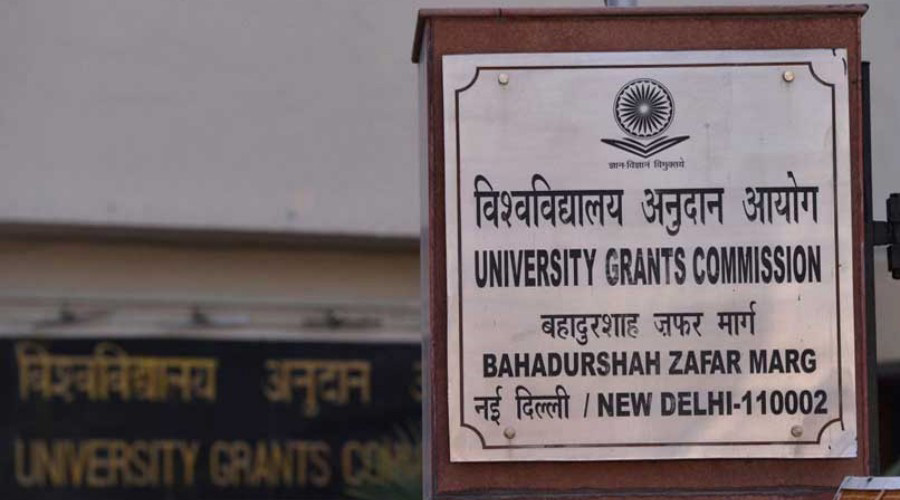The University Grants Commission wants all universities to adopt the Common University Entrance Test (CUET) to admit students to undergraduate courses, with some academics seeing it as a step to promote the private coaching industry.
UGC secretary Manish R. Joshi wrote to all universities on Friday: “To save students from appearing in multiple entrance examinations conducted on different dates, sometimes coinciding with each other, and also provide equal opportunity to all students from different boards, the UGC invites and encourages all state universities, deemed to be universities, private universities and Higher Educational Institutions (HEIs) to adopt and use CUET score for admission in their UG programmes.”
The CUET was introduced in the 2022-23 academic session as the sole criterion for admission to central universities. An expert committee had in 2021 supported the CUET as a single entrance exam. It had recommended 50 per cent weightage to the CUET and 50 per cent to the Class XII board score.
However, the education ministry overruled the 50-50 weightage proposal and directed all central universities to give 100 per cent weightage to the CUET for selection.
Abha Dev Habib, a faculty member at Miranda House College, said the proposal for CUET-based admission in all universities was detrimental to the autonomy of the institutions. Nowhere in the world have universities admitted students through a single entrance test, she pointed out.
“In the US, the universities do not admit students into undergraduate courses based on the Scholastic Aptitude Test (SAT) alone. They give weightage to the continuous performance of the students at the school level. But the UGC wants institutions to admit students on the basis of the CUET alone. This will prompt students to ignore school education and spend huge sums on coaching to do better in the CUET. It will discriminate against the students from rural and socially and economically backward sections who may not be able to take coaching,” Habib said.
She said many schools had started to offer CUET coaching to students, neglecting regular teaching. She said the requirement of each university was different. The universities should be able to independently take decisions about their admission policy, Habib said.
“The imposition of the decision from the UGC is interference in the affairs of universities. There are methods for normalisation of board marks to bring the performance of all students on a par. That is a better system than a nationalised high-stake entrance test,” she said.
Last year, the CUET had to be deferred at several centres because of technical glitches. Nearly 40 per cent of the students skipped the test.











